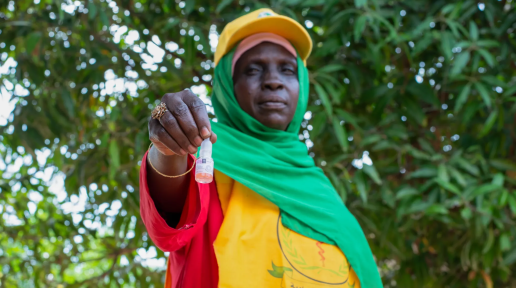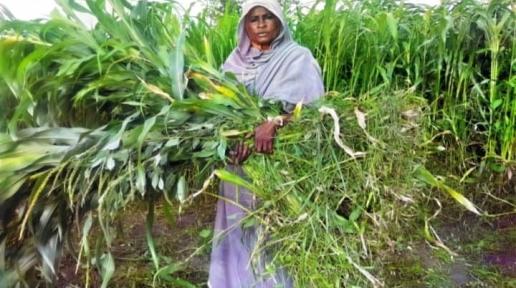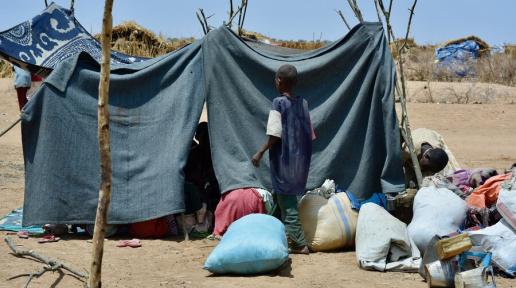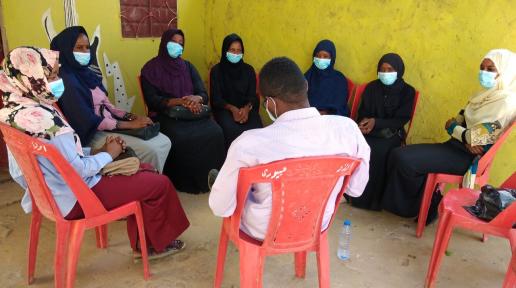Story
05 January 2026
Rebuilding Trust Amid Crisis: Local Peace Efforts Take Root in Kassala, Sudan
Over two and a half years into Sudan’s armed conflict, the scale of the crisis continues to deepen. As of November 2025, nearly 12 million people have been forcibly displaced by the ongoing war, both inside and outside the country. Famine has been confirmed in 10 areas, and the economy has contracted by more than 30% in just two years. The conflict has become one of the world’s worst humanitarian disasters.In emergencies of this scale, the international response understandably focuses on lifesaving assistance. But in communities where the conflict has fractured families, inflamed ethnic tensions, and eroded trust, one essential ingredient is often overlooked: social cohesion. As the fabric of Sudanese society unravels, hidden within this crisis are stories of resilience — where people are rebuilding trust, solidarity, and shared purpose, one initiative at a time.Since the outbreak of the war in April 2023, the Secretary-General’s Peacebuilding Fund (PBF) has prioritized efforts to strengthen social cohesion and foster peaceful coexistence in conflict-affected communities.In Sudan, this work is not a long-term aspiration; it is an immediate necessity. Without trust between communities, humanitarian assistance risks being politicized or rejected, inter-communal conflicts escalate, and peace efforts struggle to take root. Kassala State offers a window into what’s possible when social cohesion is strengthened during crisis rather than after it. The PBF–funded project Strengthening Capacities for Peace and Social Cohesion in Kassala and Red Sea States, with an investment of USD 5 million and implemented by UNDP and UNICEF, has supported social cohesion, youth engagement, gender equality, governance, and livelihoods.Women Across Divides: Rebuilding Peace Through Trade In Kassala town, 25 women — some displaced from Kadugli in South Kordofan, others belonging to the host community — have come together to run a petty trade initiative supplying essentials like sugar, flour and cooking oil. Supported through a PBF-funded micro-grant via UNDP, the business has grown into a shared livelihood for women who once lived on opposite sides of the conflict divide.But the impact goes far beyond economic survival.“We used to look at each other as strangers,” says Amani, a participant originally displaced from Kadugli. “But through this project, we became partners. Now, we share not just goods, but goals and respect.”Weekly meetings have become safe spaces where the women resolve challenges, bridge mistrust, and reinforce social ties weakened by displacement and fear.“I used to worry about the future, about division,” says Gisma, from Kassala. “But this project gave me hope. We now have a reason to work together, to support each other. It has changed how we see ourselves — not just as tribes, but as women with a common purpose.”What started as a micro-enterprise has become a model for how community-led livelihoods can stabilize tensions, replace suspicion with solidarity, and build peace that is rooted in daily life.Youth Leading the Way: Khawla’s Story Young people in Kassala are also stepping into roles traditionally reserved for community elders, helping to mediate disputes and counter rising crime, drug use, and misinformation.Khawla, originally from Kadugli, is one of the Youth Ambassadors trained under a Peacebuilding Fund project implemented by UNDP and UNICEF. She organizes open-air awareness sessions in markets, youth centres and cafes, speaking about peacebuilding, crime prevention, and drug awareness.“During the war, many of us felt hopeless, but being part of this group gave me purpose,” Khawla shares. “When I see young people listening, asking questions, and starting to believe that peace is possible, I know our work matters. It’s not just about awareness—it's about restoring trust and rebuilding our communities from the ground up.”As a member of the Peace and Reconciliation Group - a respected body of elders - Khawla also helps mediate local disputes, bridging generational divides and strengthening communal resilience.Rebuilding from the Ground UpSudan’s emergency demands immediate humanitarian assistance— but it also demands investment in the social bonds that prevent violence from spreading. In Kassala, community-level efforts are helping contain inter-communal tensions that might otherwise escalate into broader conflict. These initiatives show that even during active war, small interventions can create pockets of stability and reduce the risk of further mobilization along ethnic lines.Social cohesion is not an afterthought. It is a prerequisite for humanitarian access, community resilience, and lasting peace.Scaling Up: New Partnerships and Catalytic ResultsBuilding on PBF’s initial investment in the Strengthening Capacities for Peace and Social Cohesion project, UNDP has mobilized significant additional funding:$3.5 million from KSRelief to expand access to water in 36 communities across Aroma, Kassala, and New Halfa, reducing tensions over scarce resources.$4 million from Switzerland to reinforce livelihoods support in targeted areas. Beyond financial resources, the programme has generated significant catalytic effects:Community-Based Reconciliation Mechanisms and Youth Peace Ambassadors have become central to mediation and conflict prevention.Youth in New Halfa helped reconcile four historically divided tribes, a major shift in a region long marked by local disputes.Local authorities are increasingly favouring community-led approaches over military responses, contributing to a noticeable reduction in tribal conflicts.Across Kassala, small acts of cooperation are offering a counter-narrative to the violence that has defined Sudan’s recent years. Women rebuilding livelihoods together, youth mediating disputes, elders and newcomers sharing resources: these efforts may not make headlines, but they are strengthening the social fabric where it is most fragile.














